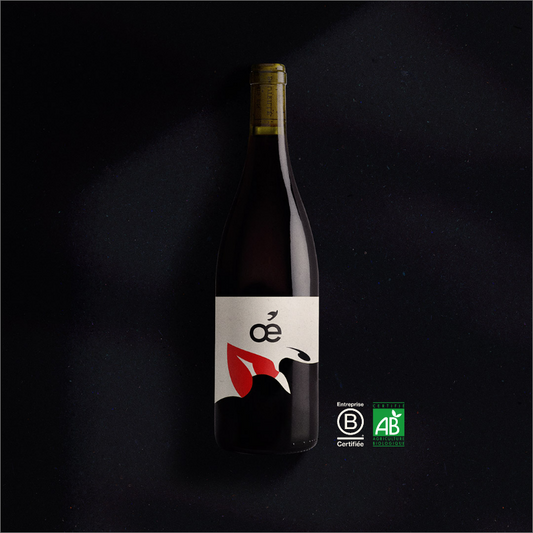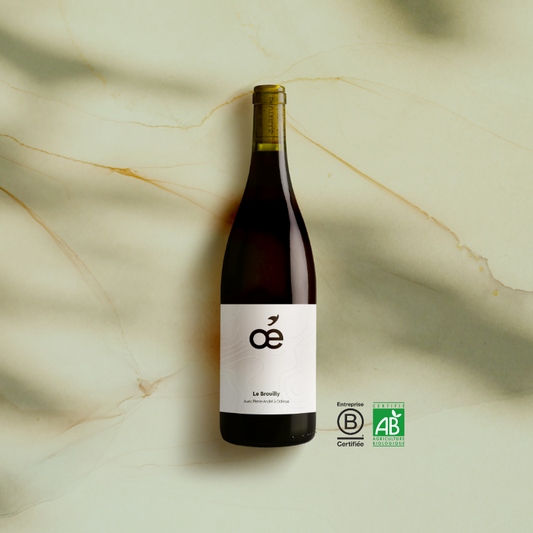Fabien is the winemaker Oé with whom we produce the Vaucluse Principality of Orange cuvée that we reserve for our partners, restaurants and caterers. Located in Bollène, we met him to discuss his commitments and his passion for the vines.

Can you tell us about the history of the estate?
“My grandfather bought the estate in 1972 and my father built the cellar some 20 years later in the 1990s. I arrived at the estate in 2009 for my part, and I have always seen my great -father build the vats in which we store and vinify the wines. We enlarged the cellar together in 2013 to put in other vats made by my grandfather.
“We obtained organic farming certification in 2010 and as we are surrounded by forests, we have never needed to use insecticides on our vines. We have never been infested by grape worms because the fauna is well developed when we are organic. There are also quite a few bats and swallows on the estate so I think that plays a big role in the health of our vineyard.”
What causes are you most passionate about?
“Our commitment to organic farming of course! My father always worked the soil without using insecticide. And as my presence brought in the workforce, we thought it was time to take up the organic challenge while making sure we had the shoulders to get there.”
What challenges do you encounter in the vineyard?
“We are in a fairly windy region so we have fewer disease problems, except in 2018. We had a wet spring, rain and a lot of mistral so it was impossible to treat. We have recorded a loss of 70% of our harvest due to mildew. Apart from this episode, growing organic in our region is still easier than elsewhere. We only use between 1 and 2 kg of copper per hectare per year.”
Do you have other activities in parallel with the vines and which complete the estate?
“At the moment, we are on sandy ground with very little organic matter. A weed test is set up to see how the vine behaves. Regarding the cycle of the vine, we try to let the soil rest for 3 to 10 years by inserting lavender crops to let it rest well between plantations. The local fauna is well developed, with swallows that nest here and bats. We also have a beekeeper from Savoie who comes to put his hives in winter for their overwintering and in the spring.”
How do you respond to the attacks of copper and sulfur?
“Of the annual treatments that I do on my vines, there are conventional ones that put in 2 treatments what I do in one year. Last year I was at less than a kilo of copper per hectare. So it makes me laugh a little to hear people talk about organic. Until the 1960s, copper was widespread on the vineyards and in enormous quantities, up to 50 kilos or even more. Now the doses are much lower. In the review of oenologists, they talk about the treatment of conventional vineyards against rot, boscalin. This pesticide is used to block the respiration of fungi and it turns out that it would also be effective on humans, animals, etc... It is the same process as for everyone's respiration, so even if copper can cause some problems, the boscalid can kill people.”
How is the winemaking process in your domain?
“We vinify in my grandfather's temperature-controlled stainless steel vats. Pumping over is done two to three times a day to extract the material well and aging is not too long to keep the fruity side of the IGP. Then we do the pressing and aging in the vats.”
With which dish to marry the Vaucluse Principality of Orange?
“It is an aperitif wine that goes perfectly with grilled meats and fresh cheeses.”
We are visiting Fabien and his estate on June 30th, we can't wait to see the evolution of the vine!





